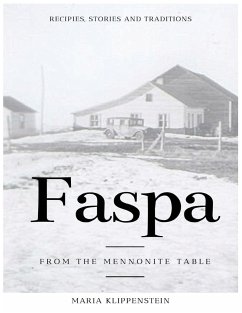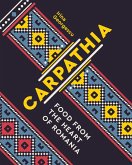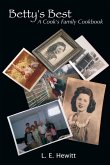FASPA is not only a book to be used for cooking, but it tells a story of a way of life and how as a small Mennonite girl, I lived, ate, grew and communicated with the wealth of family, neighbours, church and school in my traditional community. Some of the history included in FASPA include heritage information of the Mennonites in Europe in the early 1500's to the migration of the Mennonites to Canada in 1874 to present. FASPA is full of many Mennonite recipes and traditions. Included in this book is some information on the Mennonite Canadian architecture, history, religion, culinary traditions, way of life, language, and literature. Faspa is a Traditional meal that is served in a Mennonite home, it is served in the afternoon around 3 o'clock. The Faspa meal is a time during the week for a break from your work. Faspa on Sundays is a special time for family and friends to gather, share food, and visit.
Hinweis: Dieser Artikel kann nur an eine deutsche Lieferadresse ausgeliefert werden.
Hinweis: Dieser Artikel kann nur an eine deutsche Lieferadresse ausgeliefert werden.








